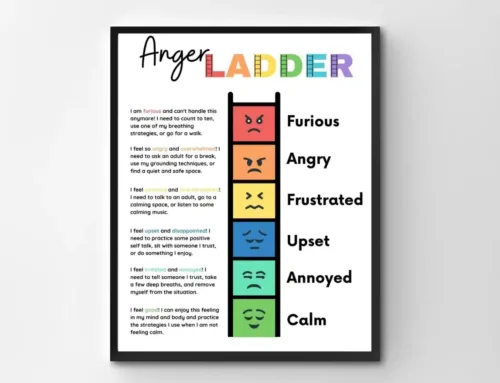Anger in men is a normal human emotion, yet without skills it can spiral into anger outbursts, relationship issues, and health risk. Most men can manage anger with simple tools that calm the body, widen thinking, and improve communication so angry feelings are expressed appropriately in a healthy way.
How do I control anger now?
Use breath, a short pause, and a cue line to create space before you act.
Run box breathing for two minutes to drop arousal fast: inhale 4 seconds, hold 4, exhale 4, hold 4, and repeat 8 to 12 rounds. Step away for two to five minutes if it is safe to do so, lower your voice, loosen your jaw, and reset posture. Use a cue line before you respond, “Pause, breathe, choose.” These moves help you stay calm in challenging or frustrating situations so anger is channelled in a healthy way rather than becoming your default reaction. For step-by-step calm routines, visit Meditation and Mindfulness Strategies.
What signs show my anger is rising?
Track body, emotion, and behaviour cues so you can intervene early.
Physical warning signs include a tight jaw, hot face, clenched fists, and a fast heart. Emotional cues include irritation, resentment, feeling guilty later, or an urge to blame. Behaviour signs include interrupting, swearing, pacing, door slams, or threatened violence. Spotting these warning signs turns a vicious cycle into a chance to reset. See patterns in Anger and Frustration.
Why do men lose temper quickly?
Externalised emotion, low frustration tolerance, and rigid rules push fast reactions.
Many men run “fix it now” rules about respect, fairness, and control, which makes minor irritations feel like intense anger under load. Stress, poor sleep, stimulants, and alcohol shorten the fuse; other feelings like fear or sadness may get externalised as anger. Practical load reduction is covered in Stress Management Techniques.
When should I seek professional help?
Act if anger risks safety, work, or relationships, and seek professional support early.
Red flags include weekly blow ups, threats, property damage, a partner reporting fear at home, or difficulty calming after half an hour. A focused plan typically runs six to ten sessions with measurable goals. Compare options via Counselling Services.
What skills lower anger in the moment?
Count to ten with breath, reframe the thought, and state a clear request.
Pair counting with a slow exhale to lengthen the gap before action. Replace “They disrespected me” with “They may be stressed; I will ask.” Use an I statement with behaviour, impact, and request: “When the call runs over, I feel under the pump because pickup is tight. I need us to finish on time or shorten the agenda.” For language that keeps a healthy relationship, read Resolve Conflict with Better Communication.
What is anger and how does it work?
The brain’s threat system speeds up while control lags, so quick reactions beat careful thinking.
The amygdala drives physical changes like a racing heart and tight muscles, while prefrontal control is slower. Breath and a short pause help control return, so you can express needs in a socially acceptable way.
What causes anger issues in men?
High load, unrealistic rules, and learned responses keep anger high in daily life.
Shift work, sleep debt, stimulants, and constant demands lower tolerance; rigid must and should rules add fuel. Family modelling can normalise aggression. CBT builds skills to challenge hot beliefs and change behaviour patterns; see What Is Cognitive Behavioural Therapy (CBT).
How do I spot triggers before a blow up?
Map people, places, and topics that spike anger, then plan buffers.
Common triggers include traffic, noise, interruptions, hunger, and deadlines. Keep a one-week log with time, place, intensity 1 to 10, thoughts, and outcome. Identify patterns so you can arrive early, snack before meetings, or schedule breaks before difficult situations.
How do I avoid common anger traps?
Check emotional reasoning, people-rating, and unfair expectations.
Swap “I feel it, so it is true” for “What facts support this.” Drop labels like “idiot,” describe behaviour instead, and set realistic standards. These shifts protect well being and reduce anger caused problems at work and home.
How do I reframe hot thoughts fast?
Challenge absolutes and test assumptions so thinking cools quickly.
Spot “always,” “never,” “must,” and “should” in self talk. Ask for clarity instead of mind reading, then restate what you heard to check understanding. This keeps you focused on what matters rather than who is wrong.
How do I calm my body so my head can think?
Use breath control, muscle release, and a five-minute walk to bleed off arousal.
Run 8 to 12 rounds of box breathing, scan head to toe and release each muscle group, then take a brisk five-minute walk. These reset moves help angry people who feel they have lost control to regain a sense of choice. Learn more in The Role of Breath in Healing.
How do I set boundaries without aggression?
Use clear requests and a calm tone so limits land without threat.
Keep one topic per talk, and use behaviour-impact-request in one sentence. Agree on a time limit for hard talks and a cool-off rule if heat rises. Boundaries stated this way are firm, expressed appropriately, and protect both people.
How do I fix triggers I can control?
Change one routine and review weekly so the fuse lengthens over time.
Sleep 7 to 9 hours, cut caffeine after midday, and reduce alcohol. Add two exercise blocks and plan buffers before friction points. For a simple attention and recovery practice, try Meditation and Mindfulness.
How do I tell if anger hides other emotions?
Check for fear, shame, or grief under anger and respond to the real signal.
Ask, “What else do I feel right now,” and name it. Use compassion instead of self-attack when other emotions show. This is often the first step toward resolving deeper issues that lead to repeated spikes.
How does anger affect health and relationships?
Repeated spikes strain the heart and erode trust if repairs are slow.
Blood pressure rises, sleep quality drops, and mood suffers. At home, criticism, contempt, stonewalling, and violence or aggression damage trust and safety. Learn the stress pathway in How Prolonged Stress Creates Illness.
Do men face unique pressures that fuel anger?
Social rules about toughness and control add load, so seeking help is strength.
Most men are taught to hide fear and sadness, which keeps anger as the only visible response. Choosing professional help is responsible, not weak, and often improves relationships, work, and daily life.
What options help beyond self-help?
Try CBT skills, group programs, and couples work for practice and feedback.
CBT targets thoughts and behaviour with measurable goals. Groups offer role play, accountability, and peer support. Couples sessions build de-escalation and repair routines. Explore next steps in Anger Management.
Conclusion
Anger in men is manageable with clear skills. Use deep breathing to calm the body, take a short pause, and repeat a cue line such as “pause, breathe, choose” so you control anger before it controls you. Reframe hot thoughts, use respectful communication skills, and make one clear request to protect relationships and mental health. Map triggers in daily life, reduce stress, improve sleep, and watch for red flags like rising blood pressure, frequent outbursts, or aggression.
If patterns persist, add structured anger management. Cognitive behavioural therapy teaches reframes and problem solving, mindfulness lowers arousal, and group programs or couples sessions build practice and repair routines. These steps help men turn frustration into action, reduce the risk of substance use or escalation, and build steady self-awareness and confidence. When risk is present, seek support through Counselling Services or find a local path via Perth Location. If anyone is in immediate danger, call 000 in Australia.
Related Posts
Fees And Rebates
We offer cost-effective solutions that can fit within your budget. The insights and skills acquired in therapy can continue to positively impact mental and emotional health long after the therapy sessions have ended, making it a truly worthwhile investment in yourself.















